Regular brewery maintenance is the first step in ensuring that your brewing operation runs smoothly. Without it, you can expect delays, costly repairs, and a negative impact on the quality of your product. The best way to stay on top of everything? Always have a proactive maintenance plan in place for your brewery.
We’re here to help with that. We’ll also help you draft a list of essential brewery maintenance tasks, and discuss who should take responsibility for maintaining your equipment.
But first, let’s address the basics.
Why is brewery maintenance important?
Packaging lines and heat exchangers, boil kettles, and fermenters — all this equipment will break down eventually if you don’t care for it, leading to a host of problems. Fortunately, proper brewery maintenance can prevent these issues while also improving your brewing operation. It will help with:
- Increasing your bottom line. When your equipment works as it should, you’ll experience fewer delays, ensuring you never miss an order or let a customer down. Plus, maintaining your equipment will always be cheaper than replacing it.
- Higher employee satisfaction. Equipment that doesn’t work can cause delays that result in working unnecessarily long hours, employee frustration, and an increased risk of accidents. Maintaining your brewing equipment avoids these issues, resulting in happier, more fulfilled staff who are more likely to work to a higher standard.
- Improved consistency. When your equipment is cared for correctly, it will do its job the same way each time, resulting in a more consistent product.
Let’s take a closer look at the various tasks you’ll need to carry out to ensure your brewing operation can thrive.
Checklist for Creating a Preventive Maintenance Plan
Following a consistent Preventive Maintenance Plan can make life easier. Use this checklist to create your own!
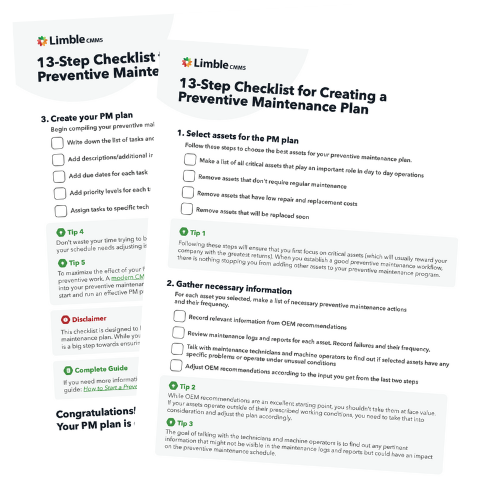
The brewhouse
The brewhouse, or the hot side, is the heart of your brewery. The following maintenance tasks should be carried out regularly.
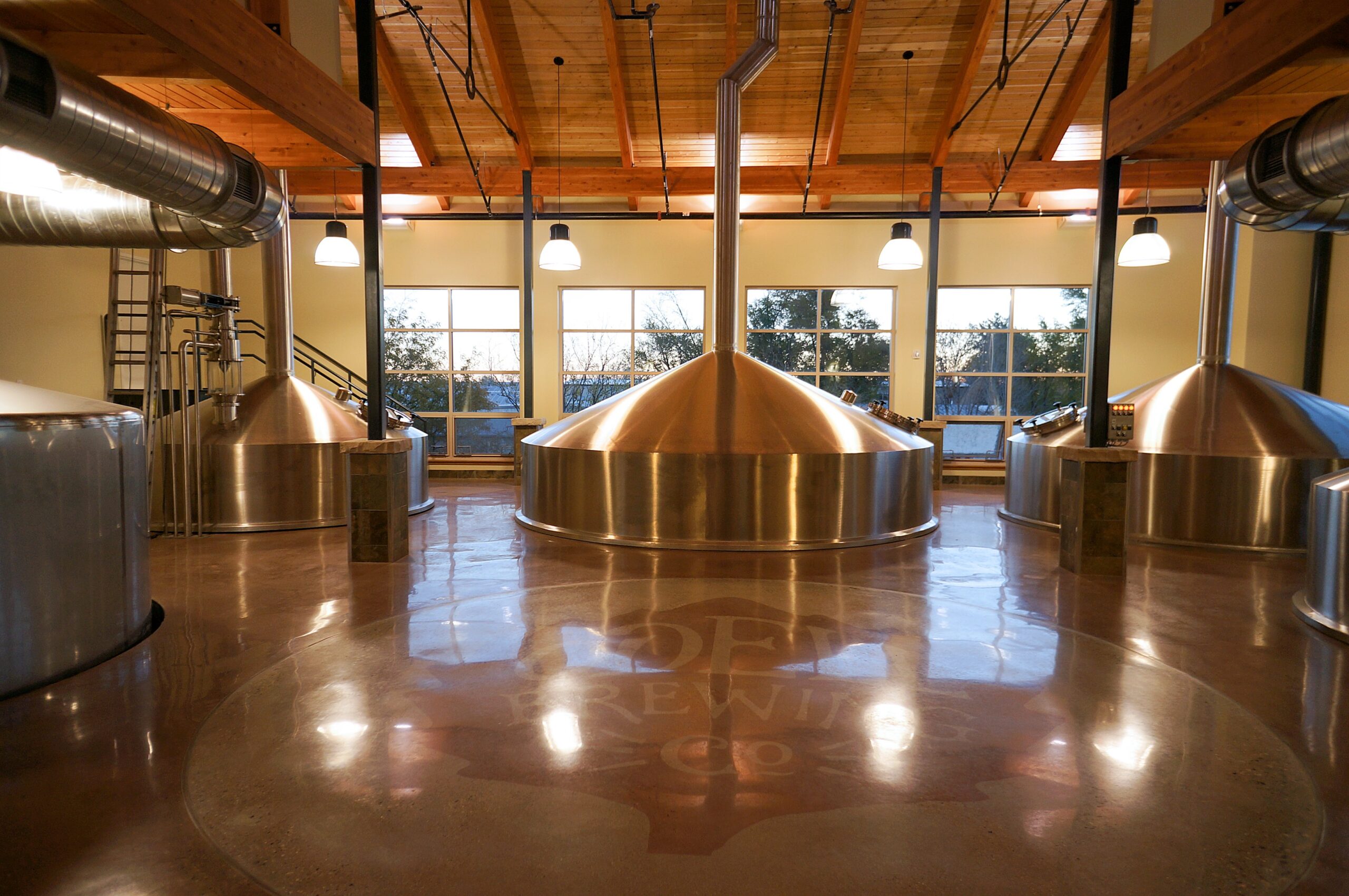
Brewhouse. Source: Odelbrewing.com
Vessel cleaning and water tests
Before each brew day, always run hot water through the entire brewhouse system. This helps you check for leaks and ensures that everything is working as it should. If you do find leaks, fixing them is usually a simple matter of replacing a gasket or tightening a clamp.
After each brew day, use a Clean-in-place (CIP) system and pressure washer combo to rinse off the worst of the dirt. Then use a caustic wash to ensure that any organic residue is completely removed, and finish off with a hot rinse.
Pump maintenance
Pumps are essential during brew day, so you want to make sure they don’t break down during use. Strip them down every month or so to check that they’re clean inside, with no obstructions. Also, take a look at the wiring to ensure it’s properly insulated and in good shape.
Malt mill maintenance
The malt mill should be cleaned immediately after use to remove the dust from the malt. This can build up and prevent the rollers from functioning adequately.
Before each brew day, check that the calibration is correct by grinding a small amount of malt. Every couple of months, it’s worth taking a look at the motor to ensure that it’s clean inside, and that everything is working correctly.
Electrical system tests
Most modern breweries use an electrical control panel to operate pumps, mash paddles, heating elements, and more. But small problems with these systems can cause big problems on brew day.
Check the wiring and components regularly for any signs of wear, vacuum the inside to remove any dust, and ensure the case keeps moisture out.
Tool calibration and maintenance
Before you start brewing, make sure all of your essential tools are correctly calibrated. This includes thermometers, pH readers, refractometers, and dissolved oxygen readers.
For the in-built temperature probes in your vessels, check the wiring occasionally, and ensure moisture isn’t getting inside the protective casing.
Vessel motor maintenance
The motors that power your mash paddle, lauter tun rake, and other mechanisms in the brewhouse vessels will also need to be checked every couple of months. Strip them down and check if any components are showing signs of wear. Look out for rust, faulty wiring, worn threads, and loose bolts.
Be sure to check the external elements as well, as they can sometimes bend and warp under strain.
Heating systems
Heating systems differ from brewery to brewery, from electric elements to steam jackets to direct fire systems. Each has its own maintenance needs, and it’s important to keep on top of them on a regular basis.
Heating system failures can delay your brewing schedule for days. They also hinder cleaning and any other task which requires hot water.
Heat exchanger
Maintain your plate heat exchanger regularly. For best results, clean it immediately after use, first rinsing it out, then backwashing with a caustic cycle before a final rinse. One or twice a year, it’s worth taking it apart to inspect the plates and do a deep clean if required.
The cellar
Keeping up with cellar maintenance can really help you avoid expensive mistakes. Problems with cooling systems in particular can spoil an entire batch of beer, especially in the hotter months.
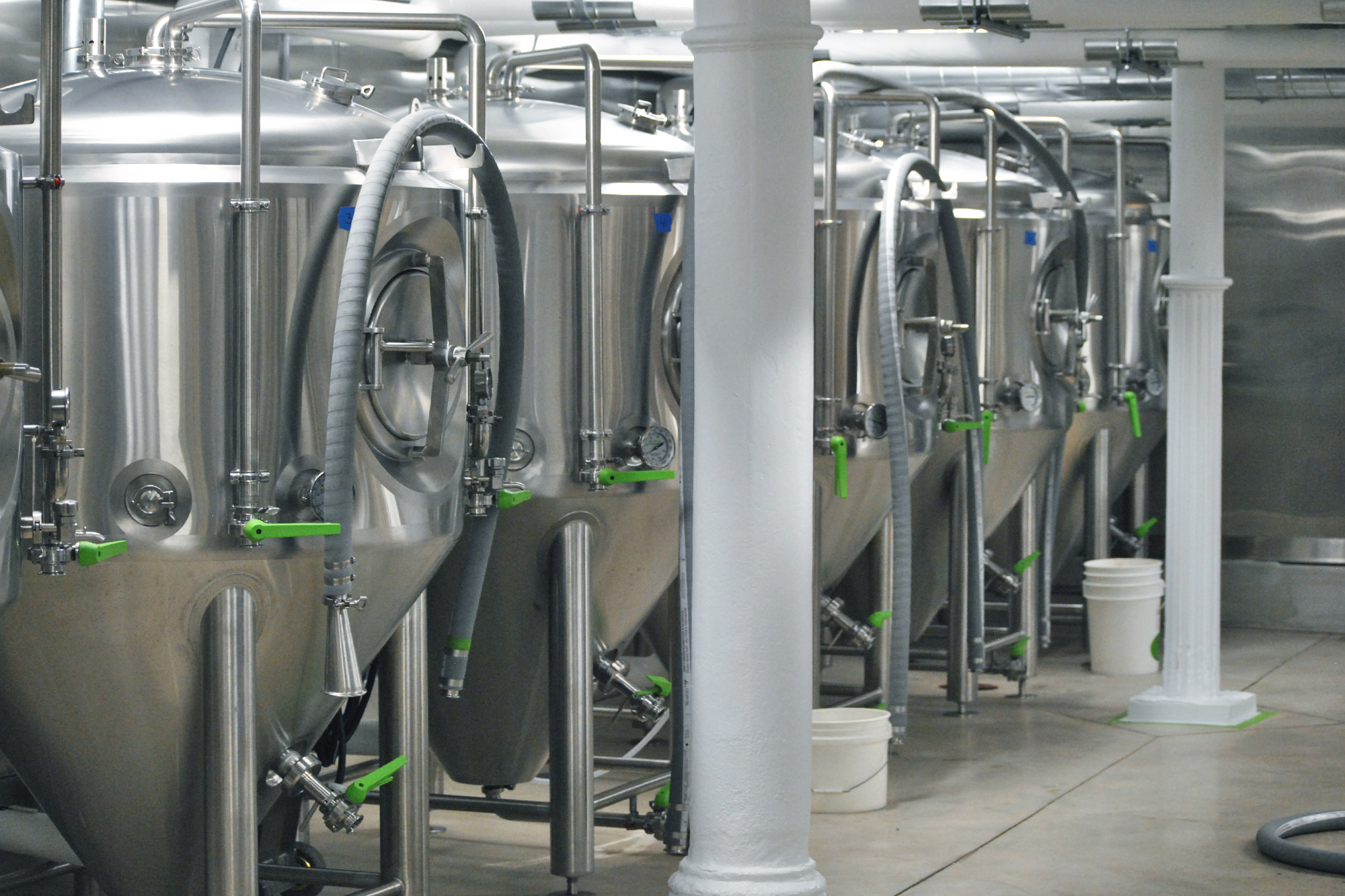
Brewery fermentation cellar. Source: Hopculture.com
Cooling systems
Your cooling system is responsible for keeping fermenting vessels at the correct temperature during both the fermentation process and the conditioning phase. It also ensures your beer stays at the right temperature during maturation and storage.
Failures in this system can be catastrophic. It can cause fermenting beer to get too hot, or it can drop the temperature too low too soon. This can spoil an entire batch by creating off-flavors or can result in stuck fermentation. Check for leaks in the pipes and pumps on a weekly basis.
Electrical panels
Electrical faults are the main reason for cooling system failures. Faulty wiring can interfere with temperature probes and solenoid valves, leading to improper cooling. Check the inside of the control panel regularly for signs of wear or moisture getting inside. Also, be sure to test the panel frequently, ensuring that cooling stops and starts correctly.
Fermenting vessels
Check that your fermenting vessels are holding pressure before filling them. During cleaning, check each gasket, valve, and clamp for signs of wear and replace them as necessary. Wash the outside of the vessels weekly to prevent contamination during dry-hopping or adding adjuncts.
The Essential Guide to CMMS
The Essential Guide to CMMS

The packaging line
Problems with the packaging line can slow down your entire operation, leading to missed orders and spoiled beer.
Regularly strip bottling or canning lines down to apply food-grade grease to the relevant moving parts and replace any worn hoses. Check the electrics and — we can’t stress this enough — make sure that no moisture gets into the control panel.
Besides the packaging line, make sure to check your labeling machine, capping tools, and boxing equipment.
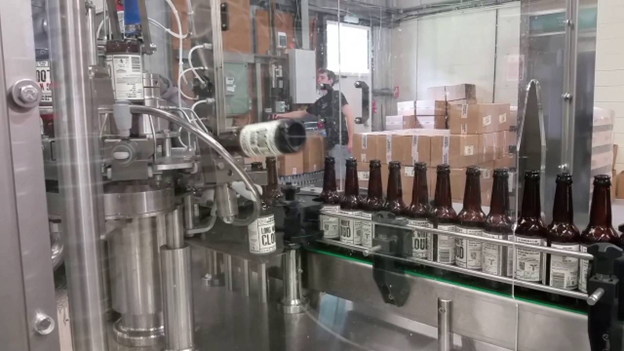
Small Beer Bottling Line – Tempest Brewing Co. Source: Enterprise Tondelli
The workspace
Maintaining the overall workspace is just as important as the equipment. Clean and repair non-slip floors to prevent accidents, and check for damage caused by heavy equipment. Regularly wash the walls and ceilings to prevent mold, and re-apply mold-resistant finishes as necessary.
Check that door seals in the cold store are working correctly in order to avoid wasting energy, and do the same for any fridges and freezers you’re using. Be sure to test the thermostats in these areas to ensure that the temperature stays within the right parameters.
Inspect your water filters regularly and replace them as needed. Finally, maintain essential machines such as pallet jacks, scales, and forklifts.
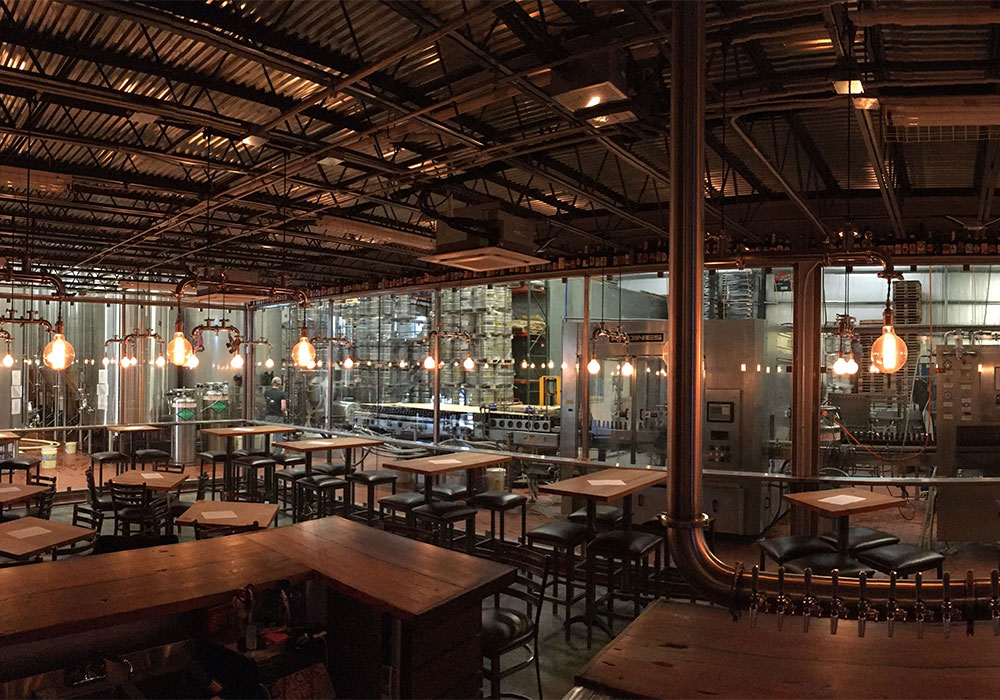
Nashville’s Blackstone Brewing. Source: Craftbeer.com
Who is responsible for brewery maintenance?
Everyone who is working in the brewery has a responsibility to care for the equipment they’re using. Breakages, faults, and anything unusual should be reported immediately, and it’s important to nurture an atmosphere in which staff can feel comfortable reporting flaws.
However, for effective proactive brewery maintenance, it’s essential to designate a maintenance manager. This person should have experience with all aspects of the brewery, as it will be their task to create an effective maintenance schedule, train staff, and oversee the processes.
In a small operation, this role will generally fall to the head brewer. But in larger organizations, there may be an engineer or technician whose primary role is to take care of maintenance.
How to create a proactive brewery maintenance plan
The best way to stay on top of maintenance is to create a proactive brewery maintenance plan. This way, you can avoid having to react to problems as they come up. Simply follow these steps:
- Identify your most important assets. Figure out which machines, tools, or pieces of equipment would cause the worst expenses and delays if they were to fail.
- Research the equipment. Once you’ve made your list, study the maintenance requirements of each piece of equipment. Find out exactly what needs to be done and how often, to ensure smooth running.
- Create an initial plan. Based on the above information, sketch out a plan. Make sure that you schedule maintenance during times the equipment won’t be required to avoid delays. For best results, opt for a modern Computerized Maintenance Management System as it will help you collect real-time data, prepare regular inspections, reduce downtime and minimize expenses.
- Track the results. Put your plan into action and examine the results. You might find that you’re spending too much time on maintaining assets that don’t need it, and not enough on others that need more regular maintenance. Adjust as necessary.
- Expand to more assets. Once you’re happy with the major assets, you can begin to add more to your plan.
Consider preventive brewery maintenance
Preventive maintenance can make a huge difference for breweries of all shapes and sizes. It really is worth dedicating time to those small tasks to avoid long delays while you repair major failures.
In order to save your time and money, and to decrease your stress level, consider opting for preventive maintenance software. If you would like to find out how Limble CMMS can help you pave the way into preventive brewery maintenance, send us an email, start a free trial, or schedule a demo.
Sit down, crack open a cold one, and let your CMMS worry about the maintenance details.
